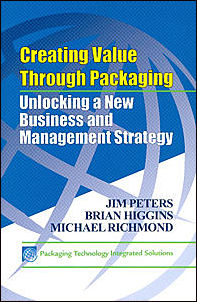New Case Study Released to Help Companies Improve Regional Plastic Film Management

The Sustainability Consortium (TSC) released the Plastic Film Management Insights case study featuring local Northwest Arkansas recycler, Marck Recycling. The case study is an extension of work previously done by TSC in the region on creating circular economies.
Plastic film is a versatile packaging material that includes grocery bags, trash bags, food packaging, wraps for agricultural products, dry cleaner bags, irrigation drip tubing and more. This material, if not handled appropriately, can damage material recovery facilities (MRFs) and can find its way into the regional watersheds. Currently, 90% of plastic film is incinerated or ends up in the landfill. Turning plastic film into economically desirable materials makes sure that this material finds its way back to new products and packaging.
Conclusions and recommendations from the report include:
- Existing systems to recycle plastic film have yet to be optimized, there is much room for improvement
- Regular communication about quality and improved source separation with generators who supply film has been shown to work
- End markets for plastic film are affected by an inconsistent volume of film, which is often delayed at recycling facilities
- Education and training are important so that employees are able to better sort materials
- Challenges remain with high-turnover of employees in positions of film sorting
- Consumer education needs to be increased as most consumers aren’t familiar with different types of plastic and what should or shouldn’t be recycled
- Regions should consider expansion of curb-side recycling of plastic film to eliminate consumers needing to bring film to specialized recycling spots
- COVID-19 has slowed down the development of new facilities slated to handle end markets
TSC and Marck Recycling collaborated on this case study to understand how to help other companies decrease plastic pollution in the region and to showcase how to find appropriate end markets for this increasingly important challenge.
Sarah Lewis, TSC senior director of innovation, says, “One reason it is challenging for communities to manage plastic film is that there is very little visibility into how it is collected and handled for recycling. This case study provides a window into how one leading commercial recycler is managing plastic film, thus providing insight into how this system works and how it could be improved to increase the amount of plastic film recycled.”
Marck Recycling has over 23 years of experience collecting, processing and marketing recyclable materials. They currently operate nine facilities across the Midwest and Southern U.S.
“Recycling LDPE films in Northwest Arkansas is one of the most optimum grades of plastic to recycle in the area. At Marck Recycling, we see transparency as the key to improving the recyclability of plastic films. We are fortunate to be able to reduce our environmental impact by being local to the consumers of these materials. We are excited to be a part of this new study and hope the actions Marck is taking can help others in the industry,” says Mike Wilson, VP, Marck Recycling.
For more information visit www.sustainabilityconsortium.org.
Looking for a reprint of this article?
From high-res PDFs to custom plaques, order your copy today!






